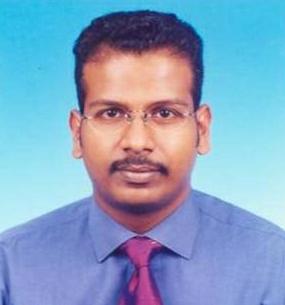|
|
| Global Perspective |
| September 8, 2005 | Vol. 3, No. 18 |

Greg Lopez, a researcher and consultant, is a member of Cardijn Lay Community, working with youths and young workers on development issues.
|
The dilemma of a Catholic living in a Muslim countryBy Greg Lopez
Indeed, a myriad of God's people live in this land blessed with natural resources and secured from the wrath of nature. Malaysia is the "Promised Land" for many. Although Malaysia considers itself a secular country, the constitution states that Islam is the official religion of the country and says that all religions can be practiced freely. Now imagine the dilemma of the 40 percent of Malaysians who are not Muslim and the liberal Bumiputera Muslims when politicians in the United Malay National Organization, the main party in the ruling coalition, use race (Malay and Bumiputera) and religion (Islam) to garner support or those in the main opposition party, the Islamic Party of Malaysia, use Islam to garner support. As a Catholic living in Malaysia, I find it hard to believe that this country, blessed as it is, is at its base racist. Racism is institutionalized in the political system: the ruling coalition comprises race-based political parties -- United Malay National Organization, the Malaysian Chinese Association, and the Malaysian Indian Congress. The powers-that-be argue that power sharing -- sharing resources and decision-making -- among the races is crucial to political stability.
This would not cause much concern, if all religions were allowed the same rights and support by the state. This however, is not the case. The state supports the Islamic religion fully -- from the building of mosques, the use of government infrastructure and institutions to the payment of allowance for clerics throughout the country. There are ministries at the federal and state level solely focused on the promotion of the Islamic religion and culture. State support for other religions and cultures are nonexistent. All other faiths are to be funded through and by their own communities. However, there is a certain sense of solidarity among the citizens, especially among the non-Muslim community. Essentially, the ruling parties are concerned with the control of Bumiputera Muslims. They worry that their political base would be eroded if Bumiputera Muslims do not look to them for leadership. This is why they fuel a sense of racial and religious chauvinism among certain quarters of the Bumiputera Muslim population. The most glaring example of a rejection of other religions is that Islam is not officially represented on the Malaysian interfaith council, a council formed by established faith communities in Malaysia to promote dialogue and discuss matters relating to religion.
For example, Catholic mission schools are run now as secular national schools. (There are a limited number of private Catholic schools, which are managed along Catholic philosophy.) The changes were made for reasons of nation building and because of the declining number of religious in the education field; however, the implementation of this policy has left a bitter taste among Christians especially since many of the early Bumiputera Muslim founders and national leaders were educated in mission schools and universities, both local and overseas. I am reminded of how a famous Malaysian Jesuit concludes The Lord's Prayer: "… and protect us Lord from all evil and subtle religious persecution." Religion commands great respect in Malaysia compared to many western countries where Christianity is insulted and looked down upon. Christians are respected in Malaysia for their pioneering work in health, education and community welfare services. Christian mission schools were traditionally the elite schools in Malaysia, and Christians were prominent leaders as professionals in both the private and public sectors. Catholics in Malaysia were especially identified with education and good deeds. Catholics, however, in my opinion, have not built on these strengths. In some instances we have allowed ourselves to be compromised. In other instances we have succumbed to the fear of reprisals, to that "subtle religious persecution." We have benefited from the economic progress of the country and become complicit in a racist and corrupt political system. Middle class Catholics, while donating generously for welfare causes, have receded from the public sphere as leaders championing for the cause of justice and peace. The number of Catholics has increased, however, the effectiveness of championing the cause of our faith -- the gospel values -- has taken a back seat. Fear of reprisals from the government has made many Catholics focus on devotional matters. I conclude that, the vibrant Catholic community that in the 1970s led movements such as the Young Christian Students and Young Christian Workers as well as political parties (many of the student and worker leaders naturally moved into the trade unions and political arena) are a pale shadow of their former self due to overt and subtle persecution by the ruling political party leading to a culture of fear, as well as secularism, leading to young Catholics losing their Catholic identity. We have created many leaders in and within the church, but as a Catholic who is Malaysian living in Malaysia, we are called to witness our faith, and that means full participation as a Catholic in nation building. |
||||||||||
| Copyright
© 2005 The National Catholic Reporter Publishing Company, 115
E. Armour Blvd., Kansas City, MO 64111
TEL: 1-816-531-0538 FAX: 1-816-968-2280 |